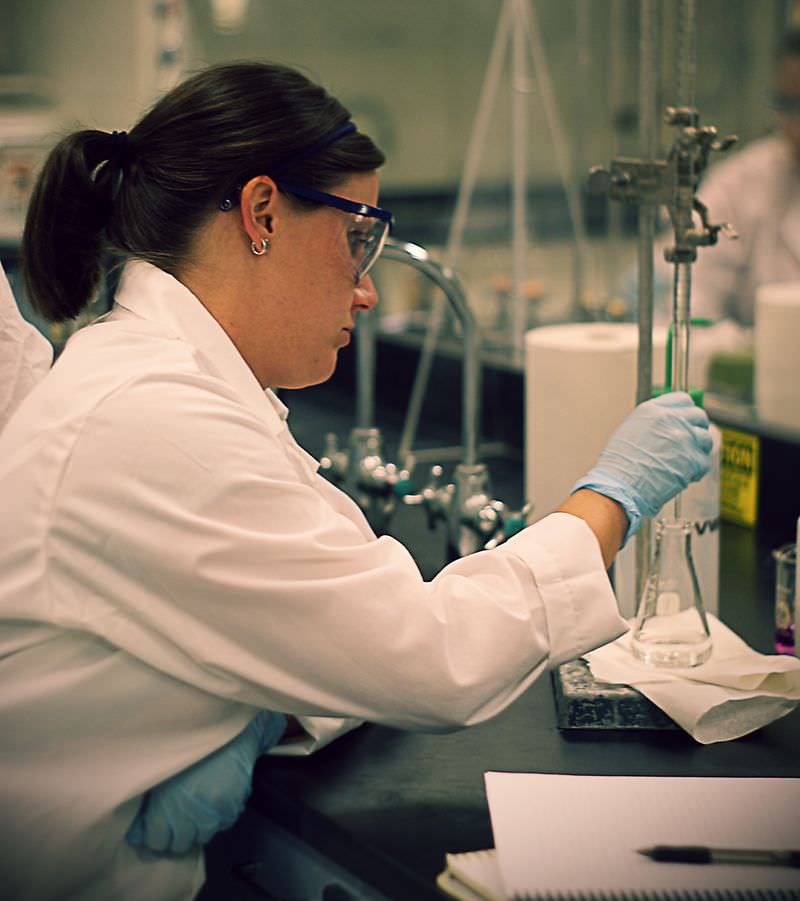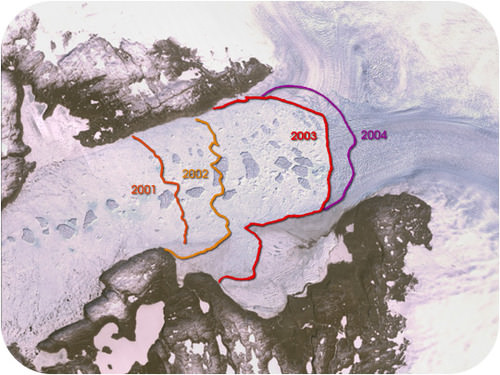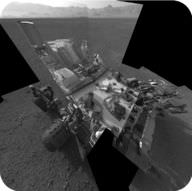1.6观察与实验
章节大纲
-
How do you test a hypothesis?
::你如何测试一个假设?When you test a hypothesis , you must make observations or perform experiments . So far in this concept we have used scientific papers that were published. The papers were available because scientists collected that data using . If we asked a new question, we would need to do the testing ourselves. How might you do the testing yourself?
::当您测试一个假设时, 您必须进行观察或实验。 到目前为止, 我们在这个概念中使用了已经发表的科学论文。 这些文件之所以可用,是因为科学家们收集了使用这些数据的数据。 如果我们问一个新的问题, 我们需要自己做测试。 您如何自己做测试呢 ?Testing Hypotheses
::测试假假设To test a hypothesis you need data. How do you collect data? By making observations or running experiments.
::要测试一个假设, 您需要数据。 您如何收集数据 ? 通过观察或实验来收集数据 。Observations
::意 意 意 意 意 意 意 意 意 意见Observations can happen on many scales. You can use a microscope to observe tiny things. You can use a telescope to observe distant things in space. To learn about the effects of climate change, you could observe Earth's surface. How would you make observations of Earth's surface? You could do this from the land surface or from space. Many important observations are made by orbiting satellites . These satellites have a bird's eye view of how the planet is changing ( Figure ).
::观测可以在许多尺度上进行。 您可以使用显微镜观察微小的东西。 您可以使用望远镜观察遥远的太空事物。 为了了解气候变化的影响, 您可以观测地球表面。 您如何对地球表面进行观测? 您可以从陆地表面或空间进行观测。 许多重要的观测都是由轨道卫星进行的。 这些卫星对地球如何变化有鸟眼( 图 ) 。This satellite image shows the retreat of the Jakobshavn Isbrae Glacier in Greenland from 2001-2004.
::该卫星图像显示2001-2004年期间格陵兰Jakobshavn Isbrae冰川的撤退情况。Observations are made when it is not possible to do experiments. Scientists send devices to make observations in dangerous places. They send devices to places that are difficult for people to go. For example, many rovers have been to ( Figure ). There will probably be many more before the first human gets there.
::无法进行实验时会进行观测。 科学家发送仪器在危险的地方进行观测。 他们发送仪器到人们难以去的地方。 例如, 许多流星已经到了( 图表 ) 。 在第一批人类到达之前, 可能还会有更多。Portrait of the Curiosity rover that landed on Mars on August 5, 2012.
::2012年8月5日降落在火星的好奇环流的肖像。Experiments
::实验实验Answering some questions requires experiments . An experiment is a test that may be performed in the field or in a laboratory. An experiment must always be done under controlled conditions. The goal of an experiment is to test a hypothesis. The data from the experiment will verify or falsify the hypothesis.
::回答一些问题需要实验。实验是在现场或实验室进行的试验。实验必须在受控制的条件下进行。实验的目的是测试假设。实验中的数据将核实或伪造假设。Variables
::变量变量变量In an experiment, it is important to change only one factor. All other factors must be kept the same.
::在试验中,只改变一个因素很重要,所有其他因素必须保持不变。- independent variable : The factor that will be changed.
::独立变量:要更改的系数。
- dependent variable : The factors that depend on the independent variable.
::独立变量:取决于独立变量的因素。
An experiment must have a control group . In the control group, nothing is changed. It is not subjected to the independent variable. For example, say you want to test if Vitamin C prevents colds. You gather a large number of people to be your sample group. Then you divide your sample group up. Some receive Vitamin C and some do not. Those who do not receive the Vitamin C are the control group. Vitamin C is the independent variable.
::实验必须有一个控制组。 在控制组中, 没有任何变化。 它不受独立变量的制约。 例如, 您想要测试维生素C是否防止寒冷。 您会收集大量的人来作为您的样本组。 然后将样本组分开。 有些人会收到维生素C, 有些人不会。 不接受维生素C的人就是控制组。 维生素C是独立的变量。Why should an experiment manipulate only one variable? Imagine a woman who eats a diet heavy on junk food. She is low on energy and says she just doesn't feel right. She decides to change her diet. She cuts out dairy products, wheat, meat and refined sugar. She also cuts out junk food. She feels better! She insists that the cause of her new well-being is the lack of dairy, wheat, meat, and sugar. But it's also possible that she feels better because she eliminated junk food. In other words, she doesn't know what made her feel better. Is it possible that it was eliminating junk food that made her feel better? Is it possible it was eliminating wheat? Meat? Maybe she's lactose intolerant and it was milk. Of course, it could have been any of those things. She doesn't know what it is that made her feel better because she changed too many variables. How could she be more scientific about understanding exactly what it was in her diet that was making her feel bad?
::为何实验只操纵一个变量? 想象一个吃重食垃圾食品的女性, 她的能量低, 并且说她只是感觉不对。 她决定改变饮食。 她切除奶制品、小麦、肉和精炼糖。 她也切除垃圾食品。 她感觉更好! 她坚持她的新福祉的原因就是缺乏奶制品、小麦、肉和糖。 但是她也有可能因为消除垃圾食品而感觉更好。 换句话说, 她不知道是什么让她感觉更好的。 是否消除了垃圾食品,这让她感觉好些了? 肉类? 也许是消除了小麦; 乳糖不耐受性,是牛奶。 当然, 这可能是其中任何的东西。 她不知道是什么原因让她感觉更好,因为她变了太多变量。 她怎么能更科学地了解她饮食中是什么让她感觉不好?Experimental Error
::实验错误Scientists make many measurements during experiments. Humans and equipment can make mistakes. Errors are often unavoidable. This is called experimental error . Errors may be due to the equipment being used. In this case, the numbers may be always skewed in one direction. For example, a scale may always measure one-half of an ounce high. People can also make errors. A measurement may not be made precisely. For example, a stopwatch may be stopped too soon or too late. But probably not always in the same direction. To correct for this, many measurements are taken. The measurements are then averaged. Experiments always have a margin of error associated with them.
::科学家在实验期间进行许多测量。 人类和设备可以犯错误。 错误通常不可避免。 这被称为实验性错误。 错误可能由使用的设备造成。 在此情况下, 数字可能总是向一个方向倾斜。 例如, 比例表可能总是测量一盎司高的一半。 人们也可以做错误。 测量也可能不准确。 例如, 停止观察可能太快或太晚。 但可能不是总能向同一方向停止。 要纠正这一点, 则要进行许多测量。 然后平均进行测量。 实验总是有误差的间隔 。Summary
::摘要- Testing a hypothesis requires data. Data can be gathered by observations or by experiments.
::试验假设需要数据,可通过观测或实验收集数据。
- Observations can be done simply by looking at and measuring a phenomenon. Observations can also be done by using advanced technology.
::观测可以简单地通过观察和测量一种现象来进行,观测也可以通过使用先进技术来进行。
- Experiments must be well-designed. They must be done under controlled conditions. Only one variable should be manipulated.
::实验必须设计周密,必须在有控制的条件下进行,只有一个变量应该被操纵。
- Errors are always possible in human endeavors. Scientists have ways to reduce the effects of errors on their data.
::人类的努力总是有可能出错。 科学家有办法减少错误对其数据的影响。
Review
::回顾- When would a scientist test a hypothesis using observations?
::科学家何时用观察来测试假设?
- When would a scientist test a hypothesis using experiments?
::科学家什么时候会用实验试验假说?
- What is the difference between an independent variable and a dependent variable in an experiment?
::实验中独立变量和依赖变量之间的区别是什么?
Explore More
::探索更多Use the resource below to answer the questions that follow.
::利用以下资源回答以下问题。- What is an observation?
::什么是观察?
- What is an inference?
::什么是推论?
- For each picture in the slideshow (slides 14 to 24), list an observation and then an inference. How can you tell the difference?
::对于幻灯片放映中的每张照片(幻灯片14至24),请列出观察和推论。您如何辨别差别?
- independent variable : The factor that will be changed.


